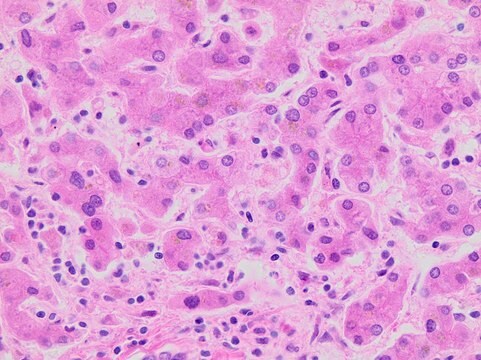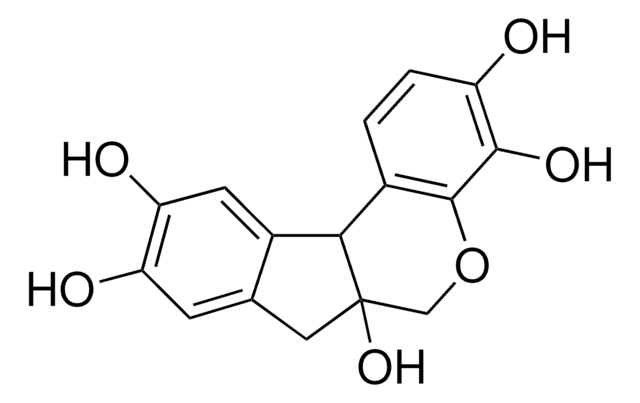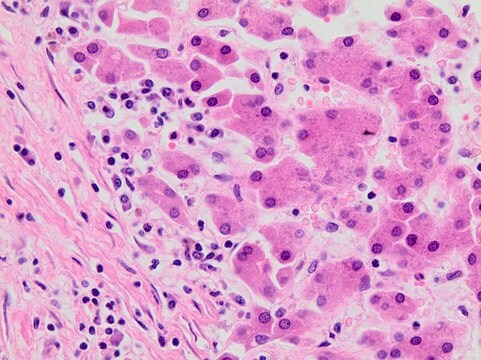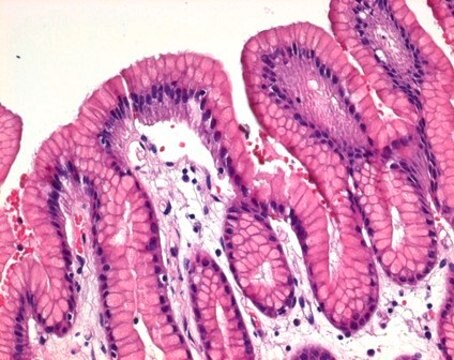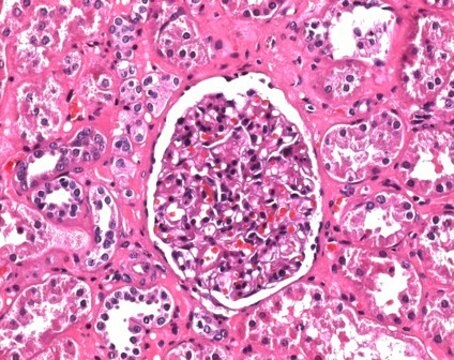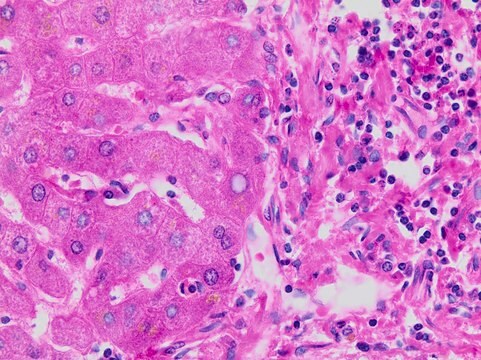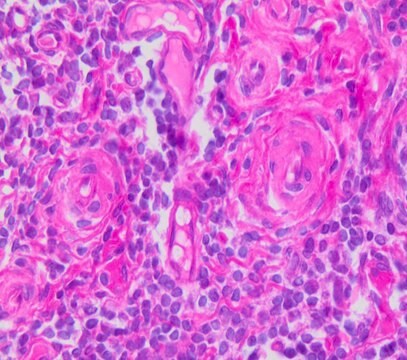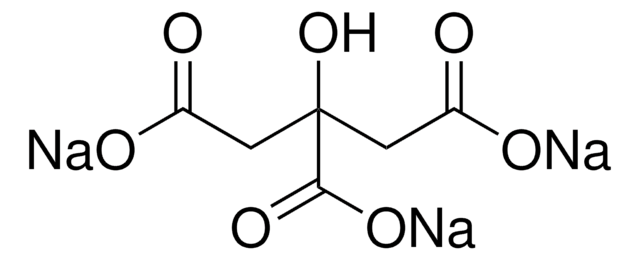GHS316
Hematoxylin Solution, Gill No. 3
Autenticatiper visualizzare i prezzi riservati alla tua organizzazione & contrattuali
About This Item
Prodotti consigliati
Forma fisica
solution
Livello qualitativo
Durata
Expiry date on the label.
IVD
for in vitro diagnostic use
Concentrazione
6 g/L
applicazioni
hematology
histology
Temperatura di conservazione
room temp
Cerchi prodotti simili? Visita Guida al confronto tra prodotti
Applicazioni
Gill formulation No. 3 may be used for cytology and/or histology as a progressive or regressive stain depending on length of staining time.. Used with hematoxylin and eosin staining.
Altre note
6 g/L certified hematoxylin
Avvertenze
Danger
Indicazioni di pericolo
Consigli di prudenza
Classi di pericolo
Eye Dam. 1 - Met. Corr. 1 - STOT RE 2 Oral
Organi bersaglio
Kidney
Codice della classe di stoccaggio
8A - Combustible corrosive hazardous materials
Classe di pericolosità dell'acqua (WGK)
WGK 1
Certificati d'analisi (COA)
Cerca il Certificati d'analisi (COA) digitando il numero di lotto/batch corrispondente. I numeri di lotto o di batch sono stampati sull'etichetta dei prodotti dopo la parola ‘Lotto’ o ‘Batch’.
Possiedi già questo prodotto?
I documenti relativi ai prodotti acquistati recentemente sono disponibili nell’Archivio dei documenti.
I clienti hanno visto anche
Radhika Rao Arasala et al.
Stem cell research, 37, 101444-101444 (2019-05-11)
Human pluripotent stem cells (hPSCs) acquire changes at the genomic level upon proliferation and differentiation (Peterson and Loring, 2014). Studies from International Stem Cell Initiative and independent laboratories identified a copy number variant (CNV) in hES cell lines displaying a
LaTayia M Aaron-Brooks et al.
The Prostate, 79(9), 980-993 (2019-04-19)
Prostatic inflammation and various proinflammatory systemic comorbidities, such as diabetes and obesity are associated with human benign prostatic hyperplasia (BPH). There is a paucity of in vivo models reflecting specific aspects of BPH pathogenesis. Our aim was to investigate the
Olivia D Lara et al.
Scientific reports, 9(1), 17589-17589 (2019-11-28)
The prognostic and therapeutic value of the tumor microenvironment (TME) in various cancer types is of major interest. Characterization of the TME often relies on a small representative tissue sample. However, the adequacy of such a sample for assessing components
Alejandro Villar-Prados et al.
Molecular cancer therapeutics, 18(2), 421-436 (2018-11-14)
Systematic approaches for accurate repurposing of targeted therapies are needed. We developed and aimed to biologically validate our therapy predicting tool (TPT) for the repurposing of targeted therapies for specific tumor types by testing the role of Bromodomain and Extra-Terminal
Ido Sagi et al.
Cell stem cell, 25(3), 419-432 (2019-09-07)
Genomic imprinting is an epigenetic mechanism that results in parent-of-origin monoallelic expression of specific genes, which precludes uniparental development and underlies various diseases. Here, we explored molecular and developmental aspects of imprinting in humans by generating exclusively paternal human androgenetic
Il team dei nostri ricercatori vanta grande esperienza in tutte le aree della ricerca quali Life Science, scienza dei materiali, sintesi chimica, cromatografia, discipline analitiche, ecc..
Contatta l'Assistenza Tecnica.